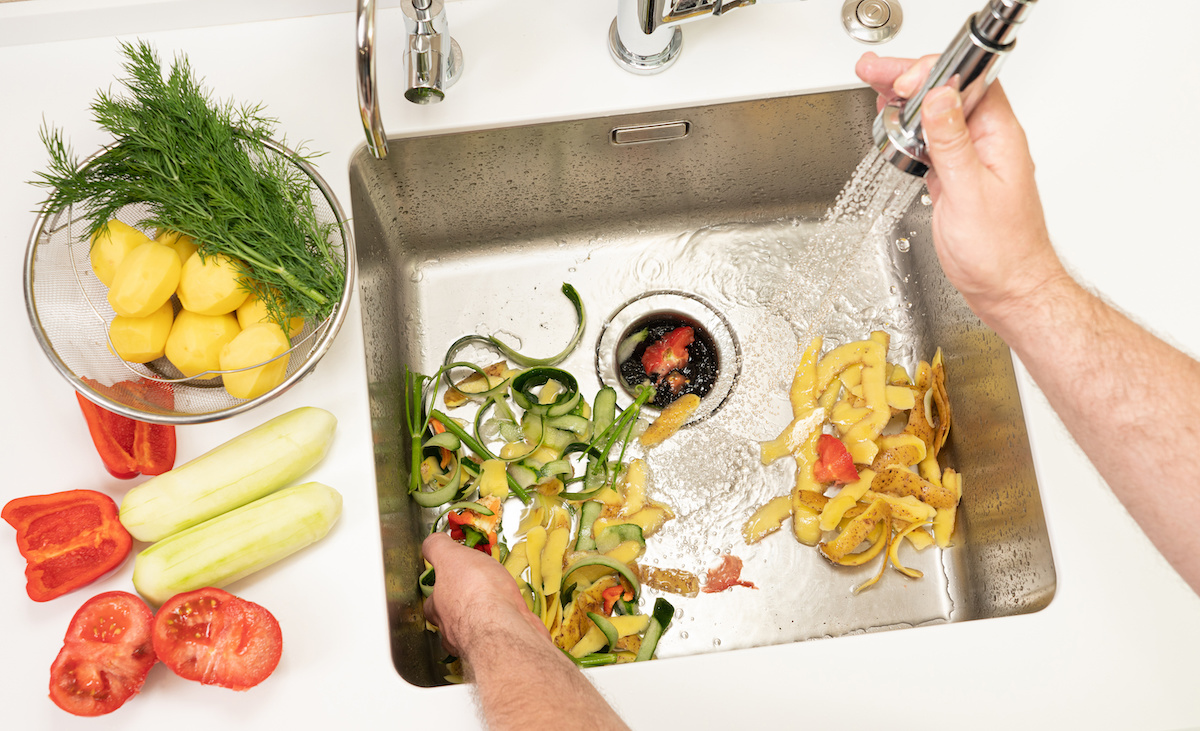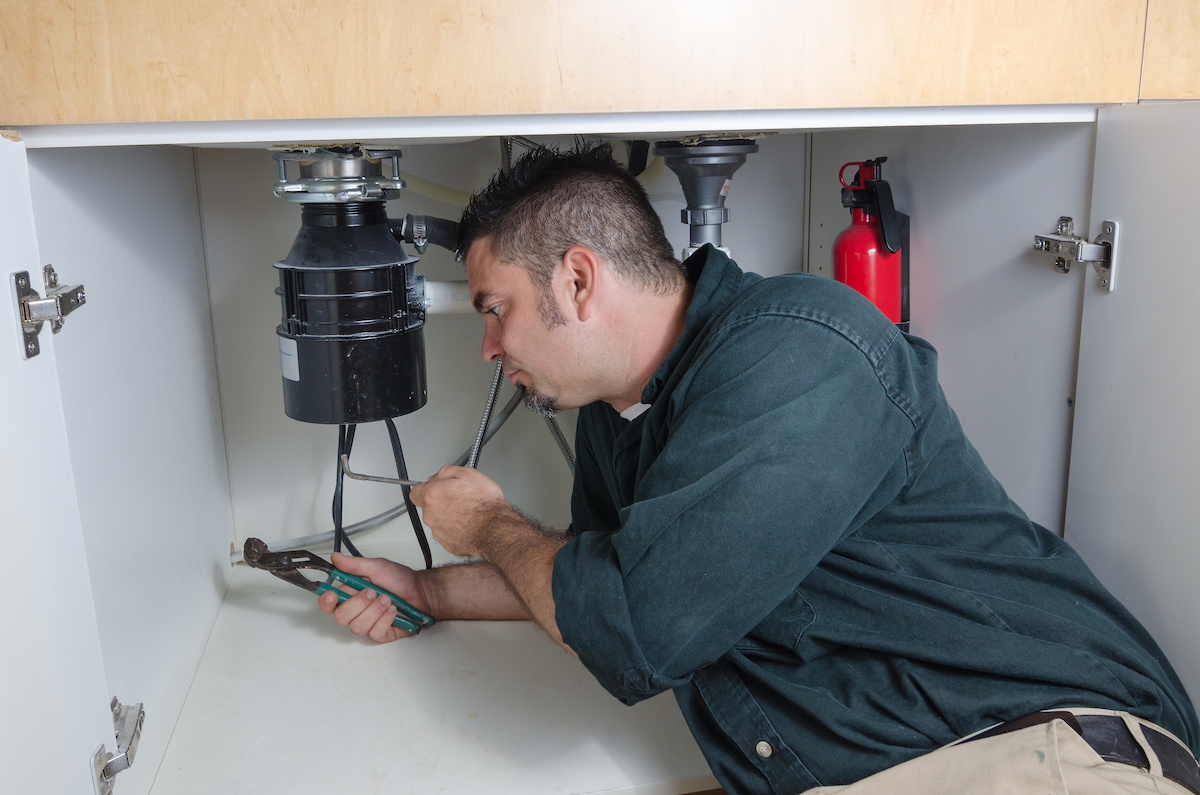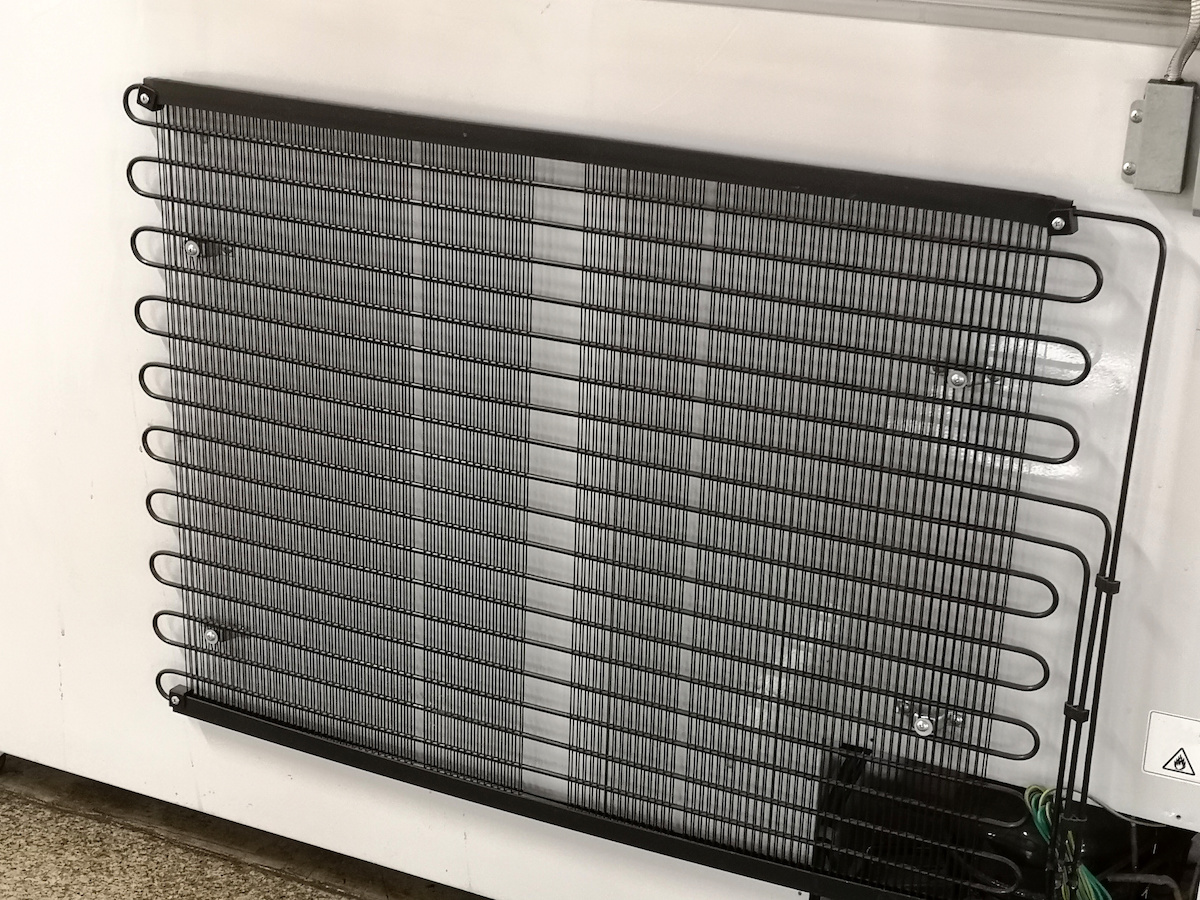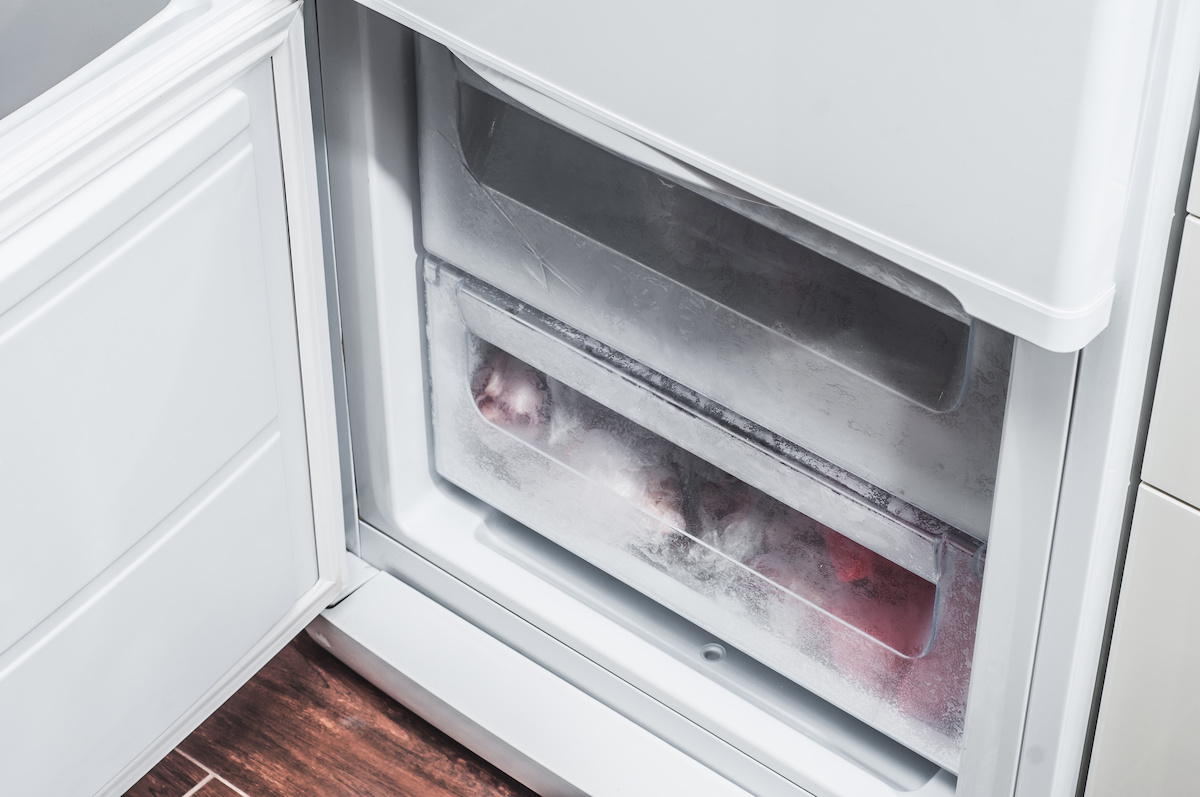
Simple Tips for Garbage Disposal Repair
A malfunctioning garbage disposal can be a major inconvenience in any household. When your garbage disposal stops working or begins to show signs of trouble, it can feel like a weighty task. It’s an issue that may prompt you to call a garbage disposal repair service, like your friends at Atlanta Appliance Services, right away.
However, before reaching for the phone, it’s worth trying a few simple troubleshooting steps to see if you can fix the problem yourself.
In this article, we will discuss some basic tips for garbage disposal repair. If your garbage disposal still isn’t working after giving these a try, call Atlanta Appliance Services!
Keep Your Safety First
Before attempting any repairs on your garbage disposal, it’s important to prioritize safety.
Always remember to disconnect the power supply to the unit to avoid the risk of electrical shock. This can be done by either unplugging the unit from the power outlet or turning off the circuit breaker that supplies power to the disposal.
Additionally, it’s a good idea to wear protective gloves to prevent injury while working on the disposal.
Check the Power
If your garbage disposal doesn’t seem to be working at all, the first thing to check is whether it’s receiving power. Sometimes, the disposal may have become unplugged accidentally or the circuit breaker might have tripped.
Check the power cord to ensure it is securely plugged in, and if necessary, reset the circuit breaker. But remember to be cautious as you are dealing with electricity and can risk shock.
Avoid Damage to Your Garbage Disposal with These Tips
Use Cold Water
To keep your garbage disposal running smoothly and prevent clogs, it’s important to use cold water when operating it. The cold water helps solidify any grease or oil that may have entered the disposal, making it easier to chop up and flush away.
Always run cold water for a few seconds before and after using the disposal to ensure proper functionality and prevent clogs.
Avoid Certain Foods
While garbage disposals are designed to handle a variety of food waste, there are certain items that should never be put into the disposal.
Avoid disposing of the following foods to prevent damage and clogs:
- Hard materials: Foods with hard materials such as bones, fruit pits, and shells should never be put into the garbage disposal. The blades of the disposal are not designed to handle such hard substances and can become damaged or dulled. Dispose of these items in the trash instead.
- Fibrous foods: Fibrous foods like celery, onion skins, and corn husks should be kept out of the garbage disposal. These fibers can wrap around the blades, causing them to jam and leading to clogs. It’s best to throw fibrous food waste in the trash or compost bin.
- Grease and oil: Pouring grease, oil, or fat down the disposal can be detrimental to its functionality. These substances can solidify and accumulate inside the disposal and pipes, leading to blockages. Instead, let grease and oil cool and dispose of them in a sealed container in the trash.
- Coffee grounds: While it might seem convenient to wash coffee grounds down the disposal, they can accumulate and create blockages in the pipes. It’s best to dispose of coffee grounds in the trash or use them as compost for your garden.
By avoiding these foods and materials, you can prevent unnecessary strain on your garbage disposal and reduce the risk of clogs and damage. Remember to dispose of these items in the appropriate way, whether it’s in the trash, compost, or another designated disposal method.
Using your garbage disposal properly will not only save you from potential repair costs but also ensure its optimal performance and longevity.

Regular Maintenance Tips
Prevention is always better than cure, and the same principle applies to your garbage disposal.
Regular maintenance can help prolong the lifespan of your disposal and prevent major problems from occurring. Here are a few simple maintenance tips:
- Keep it clean: Regularly clean your garbage disposal by pouring a mixture of baking soda and vinegar down the drain, followed by hot water. This helps remove any buildup and eliminates odors.
- Flush with water: After using the disposal, run cold water for a few seconds to ensure all the waste is flushed away.
- Avoid overloading: Don’t overload the disposal with large amounts of food waste at once. Instead, feed it gradually to prevent clogs and strain on the motor.
- Use citrus peels: To keep your disposal smelling fresh, you can grind citrus peels such as lemons or oranges. The natural oils in the peels will help eliminate odors.
By following these maintenance tips, you can keep your garbage disposal in good working condition and minimize the need for repairs.
Garbage Disposal Repair Tips
Below are a few ways you can troubleshoot your garbage disposal.
Unclog the Disposal
One of the most common issues with garbage disposals is clogging. If your disposal is making a humming sound but not grinding or if it’s draining slowly, chances are there’s a clog.
To clear the clog, start by turning off the disposal and then using a flashlight, look down into the disposal to identify any visible debris.
Once you’ve identified the source of the clog, use a pair of long-handled tongs or pliers to carefully remove any large objects or food particles. Be cautious not to put your hands directly into the disposal to avoid injury.
After removing the debris, you can try running water to see if the clog has been cleared. If the clog persists, you can use a plunger specifically designed for use in sinks and drains. Apply firm, upward pressure with the plunger to help dislodge the clog.
Reset the Disposal
Sometimes, a garbage disposal can become overloaded or overworked, causing it to shut off automatically as a safety measure.
If your disposal suddenly stops working:
- Locate the reset button on the bottom or side of the unit.
- Press the reset button firmly to reset the disposal.
- After resetting, try turning it on again to see if it starts working.
Sharpen the Blades
Over time, the blades of a garbage disposal can become dull, leading to reduced performance.
To sharpen the blades, you can use ice cubes. Simply fill an ice cube tray with a mixture of vinegar and water and freeze it. Once frozen, run the ice cubes through the disposal.
The abrasive texture of the ice will help remove any debris or buildup on the blades, effectively sharpening them. The vinegar will help eliminate any unpleasant odors coming from the disposal.
Address Leaks
If you notice water leaking from your garbage disposal, address the issue right away to prevent further damage. This is essential because the damage can cause harm to the disposal and surrounding areas, like your walls, floors, or cabinets.
Garbage disposal leaks can occur at various points, including the:
- Sink flange
- Dishwasher connection
- Discharge pipe
Start by tightening the connections using a wrench or pliers, being careful not to overtighten and cause damage. If the leak persists, you may need to replace the faulty gasket or seal.
Check for Strange Noises
Unusual noises coming from your garbage disposal can indicate an underlying problem.
If you hear a rattling sound, it could mean that there are loose objects or debris trapped in the disposal. As an attempt to solve this problem, turn off the disposal and inspect the inside using a flashlight. Carefully remove any foreign objects that you find, and then run water to check if the noise has stopped.
A grinding or squealing noise could suggest an issue with the disposal’s bearings or blades. In this case, we suggest you contact a professional appliance repair service for further assistance, as this usually means that components may require replacement or repair.
Seek Professional Assistance
While the tips we’ve mentioned can help you troubleshoot and resolve common garbage disposal issues, there may be instances where the problem is more complex or requires specialized knowledge. In these cases, it is best to seek professional help from an appliance repair service, like your friends at Atlanta Appliance Services.
Our experienced technicians have the expertise and tools to diagnose and repair a wide range of garbage disposal problems. We can efficiently handle issues such as motor malfunctions, electrical problems, and more advanced repairs. If you are uncertain or uncomfortable performing repairs yourself, it’s always better to rely on a trained professional.

Get Your Garbage Disposal Back in Working Order
A malfunctioning garbage disposal can disrupt your daily routine, but before rushing to call a professional appliance repair service, it’s worth trying some simple troubleshooting steps.
You may be able to resolve common garbage disposal issues on your own, by:
- Unclogging the disposal
- Resetting the disposal
- Sharpening the blades
- Addressing leaks
- Checking for strange noises
- Seeking professional assistance
However, you should always practice preventative maintenance and if you do try to make the repairs on your own, prioritize your safety.
Once you’ve exhausted all of our DIY garbage disposal repair tips, seek professional help if the problems persist. No matter the issue with your garbage disposal, the professionals at Atlanta Appliance Services have dealt with the same disposal problem before. You see, we have seen it all, from sticky, gooey situations and diamond rings too. You can rely on the experts at Atlanta Appliance Services to get the repair or installation done right for you.
Contact us today for all of your appliance repair needs!



